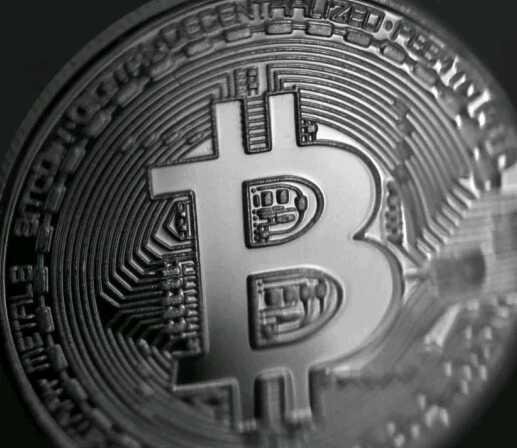Dear steemians.....
India has the seventh largest economy in the world and its population is very fond of gold. Not surprisingly, therefore, the popularity of bitcoin "digital gold" is increasing as Indians increasingly begin to see the value of this new digital asset class.
Bitcoin adoption takes a little longer to reach India than any other major economy. Bitcoin adoption grew substantially towards the end of 2016 as Indian Prime Minister Narendra Modi announced the 1,000 and 500 rupee notes demotion on November 9, 2016, to combat corruption, terrorist financing, and black money.
This move is the first step of Modi's vision for India to be a society without money and lead to increased use of electronic payment systems. Of course, as an online peer-to-peer payment system, bitcoin benefits from this and it's no coincidence that Indian bitcoin exchanges with ZebPay, Coinsecure, and Unocoin are experiencing a surge of new users today - starting the adoption of bitcoin India.

Local economy Bitcoin in India
Zebpay, Coinsecure, Unocoin, Bitxoxo, and BTCXIndia are the top five exchanges in India and allow locals to buy bitcoin using rupees. International peer-to-peer bitcoin exchanges are also popular among local bitcoin communities as can be witnessed by the trading volume of LocalBitcoins, which has been steadily increasing since mid-2016.
With the latest rally in bitcoin, local bitcoin exchanges see other user spikes. "Every three months our volumes have doubled and the trend continues," said Zebpay founder Saurabh Agrawal. Unocoin reported a similar increase, reporting 5,000 new signs per day at the end of November, up from 3,000 a day two months earlier.
Just as in most parts of the world, bitcoin is primarily purchased as an investment rather than used as a daily spending currency. However, many Indian freelancer workers and long-distance workers have begun to receive their salaries in bitcoin thanks to a partnership between paycheck companies BitWage and Unocoin bitcoins, which also help the local bitcoin economy to grow.
Reserve Bank of India and cryptocurrencies
While the Reserve Bank of India (RBI) is testing blockchain technology to improve efficiency in its financial system, it seems the central bank is still hesitant about how they will manage crypto-escalation. To date, there has been a range of diverse statements ranging from a complete ban of decentralized digital currency to RBI contemplating its own crypto publishing.
The latest news stating the RBI's attitude about bitcoin occurred on December 5, when the RBI issued a statement in which it repeated earlier warnings about the risks of investing in crypto-escalation.
"After a significant spike in the valuation of many VCs [[virtual currency]] and rapid growth in Initial Coin Offeringings (ICOs), RBI reiterates the concerns expressed in previous press releases," the statement said.
This bitcoin usage warning has become the standard among central banks around the world and although RBI comments are less bitcoin-friendly in recent months, there are no specific regulations covering the crypto assets that have been issued to date.
Crackdown on investors and ICO Bitcoin
While the central bank is still making decisions on how to manage crypto in the future, India's Income Tax Department has taken a clear action against bitcoin users that they suspect does not deposit their bitcoin returns appropriately.
Given the recent exuberance of bitcoin prices, tax authorities believe that many bitcoin traders do not report their earnings because they are legally required. Under article 133 A of the Income Tax Act, authorities are reported to have raided nine bitcoin exchanges as part of their investigations. "Income tax officials collect evidence to establish the identity of investors and traders, transactions made by them, counterparties identities, and related bank accounts used, inter alia," an ITDI official told the Press Trust of India (PTI).
Furthermore, the Securities and Exchange Board of India (SEBI) officials have told NDTV that while it has so far taken a hands-off approach to cryptographic rules, "SEBI can not allow gullible investors to be driven away by unlawful promises by they are exchanges and those who claim to be 'mint' cryptocurrencies.A number of them allegedly engaged in fraudulent activities without actually printing such virtual currencies that require very complex algorithms. "
More specifically, SEBI intends to crack down on initial coin bids that take advantage of investors who have little understanding of the risks of investing in such cryptographic businesses and those who run fraudulent operations directly.
While ensuring that exchanges comply with the KYC / AML guidelines and bitcoin investors stated that their income is nothing other than ordinary, the regulation seems to be a bitcoin-unfriendly rule only to be done in one of the most promising bitcoin economies in the world.
The Indian Bitcoin economy and its wider implications
Bitcoin's demand from India has been one of the driving forces behind bitcoin value increases over the past twelve months. Furthermore, India's potential - due to its large population - to continue to be a major driver is considerable.
Therefore, a crackdown on the crypto community in India combined with more stringent regulation can not only slow Indian bitcoin uptake but also global adoption as a whole.
Very good
Downvoting a post can decrease pending rewards and make it less visible. Common reasons:
Submit
I talk about 90s time - Follow me : https://steemit.com/@master90z
Downvoting a post can decrease pending rewards and make it less visible. Common reasons:
Submit
Great information
Downvoting a post can decrease pending rewards and make it less visible. Common reasons:
Submit